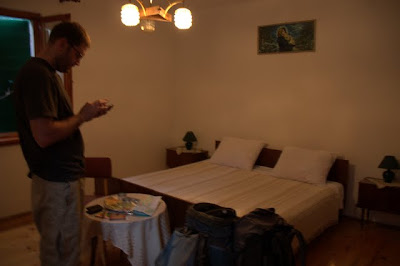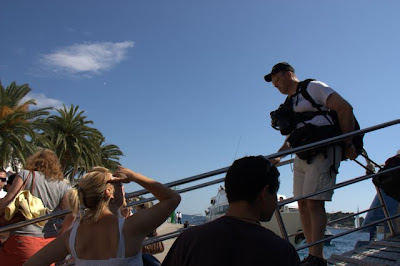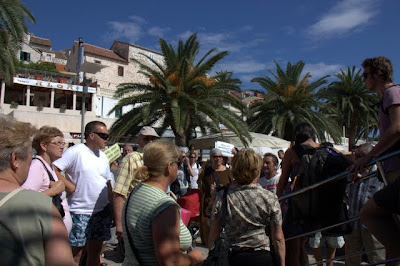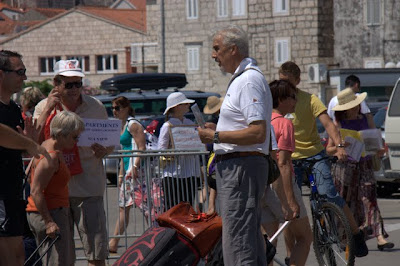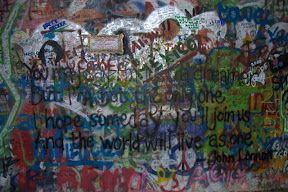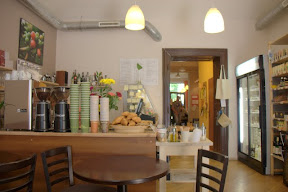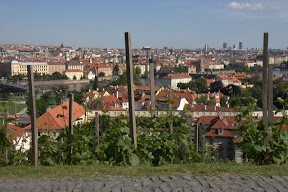Greetings from South Africa!
Finding Internet in South Africa is a major pain in the butt. In the States, we are used to all the Internet our hearts desire. Like an all-you-eat buffet or refillable super-size drinks, Internet plans are all-you-can-surf, and free wi-fi hotspots are plentiful. In South Africa, places typically pay for Internet by the amount of data they use, meaning a lot of places are reluctant to offer wi-fi, let alone for free. Based on the experiences of people who traveled here a couple of years ago, like Theresa and Jeff from Lives of Wander, it seems like Internet is more prevalent, but it is not like it is in the United States or Europe. It is not a given that a place will have it, and if we find it, that we won’t be paying a fortune for the brief limited use of a crappy computer. Even if a place has wi-fi, on many frustrating occasions my computer will connect to the network but will not allow me to access any websites. I’m not sure why South Africa hates my netbook (or why my netbook hates South Africa), but this Internet problem is the bane of my existence at the moment. Although sometimes delays on the blog are the result of me not having time to write, for once, I actually have posts and pictures lined up, just no way to post them. After staying a slew of budget accommodations for the past week or so, we splurged on a nice guesthouse in Johannesburg with….drumroll, please…free wi-fi that actually works on my computer. Hopefully I didn’t jinx anything by saying that, so I can plug away on getting the rest of the Ireland posts out for your reading pleasure. And of course I have lots to share about our wonderful experiences in South Africa. So, as usual, thanks for sticking with me and please stay tuned. Happy Friday, everyone!
The Croatian Grannies
When we were trying to decide where in Europe to go, Croatia kept popping up as a suggestion. Croatia has recently been steadily increasing in popularity as a travel destination for Americans. While just a few years ago, people had lingering concerns about whether Croatia was safe after its war of independence from Yugoslavia in the 1990s (perhaps from watching too many ER episodes about Dr. Kovac), now many wonder whether Croatia is overrun by tour groups and cruise ships. With many seaside cities with quaint stone and marble old towns, a long coastline on the Adriatic sea, and the supposed charm of Italy without the prices, Croatia has seen an influx of travelers in the last decade.
We opted to forgo a guidebook for our time in Croatian (more on that later), and did very little other research into Croatia. So when we showed up in Rovinj, a town picked somewhat randomly because it had a good bus connection from Slovenia, we were surprised to not see many hotels or any pensions (simple, budget accommodations prevalent in Europe). After walking around for a while, our backpacks heavy on our backs, we stopped in a travel agency/money exchange type of place and asked the man working there if he knew of any hotels.
He directed us to what seemed like the only hotel in walking distance from the old town and told us to come back if it was too expensive. Upon learning that the rather simple looking hotel was $160 euros a night – over $200 – we returned and rented a room from the man for $57 euros. The man instructed us to make a couple of turns and look for a house with an elderly woman leaning out of the window. The woman did not speak a word of English. The room we rented was just that – a room on the third floor of the house, grandmotherly décor, and a religious photo over the bed.
At a café with wifi later that night, we did a little more digging and learned that while Croatia has some five star hotels in various cities, the mid-level hotels and budget hostels or pensions have not found their way to Croatia. It has been decades since the fall of communism, so I can only assume there is some reason that I am not aware of that prevents opportunity seeking capitalists to fill this void. (If anyone knows the answer, I’d love to hear it. I couldn’t find a good answer anywhere).
In the meantime, the private residents of Croatia are stepping up to gain some extra income and provide lodging to Croatia’s many tourists. All private rooms must be licensed. The rooms are all different. Some are modern; some are very outdated; all are simple. Some have private ensuite bathrooms; others do not. Some are apartments, with a private entrance; others are simply rooms in someone’s house.
Even after research telling us that private accommodation was the way to go, I still hesitated when we were greeted at our next stop in Pula by an elderly woman with hair growing out of her moles, who was telling us Come with me. My room, it is very cheap. I talked Sean into staying into staying at one of the few hotels in Pula instead. At 96 euros a night (about $121), it was our second most expensive place on this trip so far, and it was nothing to write home about.
The next day, I succumbed to the reality that if we wanted to stay in Croatia, we would have to go with the Grannies. Anyone who travels to Croatia by any form of public transport will meet the Grannies. Many of the Grannies were not actually grannies at all. Some were younger; some were male. But because our first experience was with a woman who was at least 85, they will forever be known as Grannies. At each stop during our ten hour bus ride from Pula to Split, the Grannies swarmed around us, calling out Sobe? Camere? Room? Zimmer? They didn’t always speak anything other than Croatian, but they threw out the name for room in every language. Even telling them that we were just stepping of the bus to go to the bathroom sometimes didn’t stop them from shouting after us. I suppose they thought they might be able to convince us to get off the bus and stay in their town.
While you can book private accommodations in advance from the savvy owners who have set up websites or listed their properties on sites like Hostelbookers, searching for private accommodations this way is very time consuming. We found it was much easier to subject ourselves to the mercy of the Grannies at the bus stations and ferry stops. As long as you were not picky (a very difficult concept for me to grasp), you could be lead directly to a room or apartment by a Granny after finding one where the price was right. The best we could do is try to learn important facts, like how close the apartment or room was to the old town (always, very close, very close – until you press further and find out that very close means a 15 minute bus ride to town).
It was hard to choose a Granny. With the exception of a less populated island we visited, each time we stepped off a bus or a ferry in a new place, the Grannies were waiting. Some Grannies took the approach of shouting at you before you even walked down the ferry ramp.
Other Grannies rushed up to you the second you stepped on land, each of them looking at you with expectant and hopeful eyes. Still other Grannies stood back, and patiently waited for you to come to them.
The savviest Grannies had pictures of their rooms on their signs, like Maria in Hvar Town. Upon stepping off the bus in Korcula, we were drawn to Vela’s sign like a moth to a flame when we spotted the words “Free Wifi” in big black letters. (Internet access was a rare commodity in Croatia’s private accommodations. I was starting to the shakes).
While not all of our private rooms or apartments had private bathrooms, and some of them probably have not been updated in forty or fifty years, all of the rooms or apartments were clean. Some had balconies overlooking the Adriatic Sea, and most were centrally located. They ranged in price from $38 a night to $75 a night. Those willing to spend more could probably find more modern and luxurious private apartments.
Of course, the best part about staying in private accommodation is that we get to know some Croatian people a little bit better, and experience their hospitality. Nada, in Split, recommended a tasty Croatian restaurant for dinner. Vela, on Korcula Island, always stopped to chat when she saw us. When we asked if we could use the outdoor drying rack to hang laundry, she not only said yes, she offered to do a load of laundry for us for free. Valentina, on Lastovo Island, picked us up and dropped us off at the bus stop several miles away. And Maria, on Hvar Island, invited us to her birthday gathering on her patio with her family.
We ate prosciutto and cheese, drank homemade wine from Hvar grapes, and sang Maria happy birthday as she blew out the candles on her cake (which, fortunately for us, but unfortunately for her, was made by her!) While Maria spoke somewhat broken English, we got to chat with her brother and sister, both of whom spoke nearly perfect English. We met Mae and Margaret, two friends from Norway staying at one of Maria’s apartments, who brought homemade Norwegian pancakes and sang Maria a Norwegian birthday song.
For our part, we brought guacamole and salsa, made from ingredients we collected at the island’s farmer’s market. We actually were able to track down tortilla chips at the island’s grocery store, which is no small feat in Europe. The crowd chuckled at our choice of Mexican, given America’s lack of a national food. We explained that as a nation of immigrants, most American foods borrow the best of world – a diversity I rather enjoy. It was funny watching some of the guests try to figure out what to make of the guacamole and salsa. Most ate them off their plates without tortilla chips. Their confusion didn’t prevent them from polishing off both bowls.
All in all, while commodities like beers and food were more expensive than we anticipated for a country who has not adopted the euro, it is not hard to keep costs down by moving around by bus or ferry and by staying with the Grannies.
Exploration
Spending eight days in Prague meant that we had a fair amount of time to explore the city. As it was, there were still more we could have done. I never quite was able to talk Sean into going paddle boating in the river, for instance. The holy grail for any traveler is finding places where you are the only tourist in the room, without feeling like you are invading the local people’s secret place. Of course, being that you are a tourist yourself, you never can quite achieve this all of the time. Not that you necessarily would want to – there is a reason why there are hundreds of people walking across the Charles Bridge or touring Prague’s two castles. (Which, by the way, are more fortifications rather than castles. I have yet to fulfill seeing the Disney-like image of a castle I have in my head in real life). But sitting in a restaurant surrounded by people who are from anywhere but the present location, eating food that someone deemed tourists would like and pay money for, is typically not our cup of tea.
So to help us find interesting places outside our guidebook, we relied heavily upon the website Spotted by Locals. A friend of our friends in Paris told us about it while we were there, but Prague was the first time we checked it out in a more in depth fashion. The whole premise of the website is to spread the spotter’s love of their cities with visitors by sharing their favorite places. You can read the entries online for various cities across Europe, or download a city guide to use offline.
Some of the places are ones that we already knew about or would have found anyway, such as the walkway by the river with views of the Castle, or Lennon’s wall, but the suggestions often gave us a different perspective when visiting.
Others overlapped with recommendations from our hotel, such as Bio Zaharda, a cool organic coffee shop, or Clear Head, one of the best vegetarian restaurants we have been to any where in the world.
Many of them were things we may not have known about otherwise: the French patisserie St. Tropez, tucked away in a shopping complex; the intimate coffee shop Al Cafetero, where we had delicious small meals and coffee from a vacuum pot; or the little Italian cucina Osteria da Clara, where we had our anniversary dinner. (Incidentally, I am convinced that Italian is better the closer you get to Italy; must eat my way through Italy someday).
Of course, nothing beats wandering across a funky or cool place all on your own. Maybe it is something undiscovered by tourists, maybe it is something you just happened to miss when reading about the city. Either way, you never know what you might find: a chill neighborhood bar; a vineyard with surprisingly good wine and excellent views of the city; or a peaceful park with meandering peacocks.
Two months…and we are back in business!
We left Pittsburgh exactly 60 days ago. On one hand, it feels like we have been travelling forever, but we are only 2/12 of the way through our trip.
The first two weeks in Spain felt like a vacation: new, different, and fun. Then the second two weeks in Paris were like a more exciting version of home, with friends and homey apartment comforts. Then there was Morocco, and, well, you know how that was. Returning to Spain again felt familiar, and we’ve spent a lot of the time ironing out the kinks of our travel style and getting into a groove.
Some things are obvious: we get pretty cranky without constant internet; we are not a fan of shared bathrooms, but will do it if we absolutely have to; and a car is not always the best way to travel. It is fun bouncing around, but it is tiring and leaves little time for down time. So we’ve decided for the Eastern/Central Europe portion of our trip that we are going to try to see less and stay at least a week in each location. One thing that is pretty clear is that the quality of our accommodations directly affects our happiness, but it is also the biggest component of our budget. We added up how much we spent on everything so far, and if continue at this pace, we’ll be 50% over our yearly budget. Yikes. But that figure is misleading, because we are doing the most expensive part of our trip first. Or at least it better be.
Some homesickness has kicked in, particularly for me, and so to remedy that, we ended up chilling in an apartment for 10 days in Valencia. I’ll write more about Valencia later, but the reality is we haven’t been doing a whole lot other than enjoying life like this is our home and it is a perpetual weekend. (Well, what we imagine a weekend to be like, because Sean and I spent most of our weekends back left were either working at work (me) or working on our house (mostly him). We really like the idea of having a temporary apartment. It lets you daydream about living in a foreign land for a while. We actually have had two apartments in Valencia. We first booked one at 11 Flats for 3 days, and got a great deal (about $54/night) because it was booked last minute and filled the gap for the rental company. See – just like home:
Then we decided that maybe we weren’t in such a hurry to move on, and booked another apartment through the same company at 5 flats for 7 days (about $76/night).
Both apartments are in the heart of the Barrio de Carmen neighborhood, feel positively enormous compared to the tiny hotel rooms in which we have stayed, have fast internet, and modern decor. Our current place even has a washing machine, which is really the holy grail for “backpackers.” I decided to wash my clothes today just because I could. The apartments, of course, also have kitchens, which has allowed us to shop at the markets and cook real meals. (So Matt, tell your Aunt Ceci not to worry, we won’t have to eat out for 365 days straight).
We’ve also been filling our days with running errands, a need that does not disappear when you cross borders. One big errand we accomplished is re-purchasing our camera. It looks like our renters insurance is going to cover the camera, minus a $500 deductible. We’ve been scouring Valencia for a replacement since we arrived last week. There are not many camera stores in Valencia, and our internet searches turned up nothing. It took days of scouting to find what we needed, accomplished by a combination of asking the reception desk at the apartment company, asking a random photography studio, and keeping our eyes peeled while we walked around in popular shopping areas. In the off chance anyone is ever in Valencia and in need of a camera or equipment, check out the El Corte Ingles department store on Colon (think Macys, with electronics), a photo store by the bullring (think independent photo store), FNAC on some street I forget (think Best Buy), and FotoPrix in the Nuevo Centro mall (think Ritz Camera). Sean entertained himself by re-researching camera options. He dreamed of going smaller and getting something new to play around with, I dreamed of taking pictures with my SLR again. We pondered lots of alternatives, such as getting a compact micro four thirds camera, or reducing our zoom capabilities by getting a smaller lens. In the end, when we stumbled across the same camera and lens we had before as a set for a great price, Sean’s dreams of lightening our load were dashed one more time. We are now the proud owners of a Canon XSi (450D here in Europe) and 18-200 mm lens once again. Yippee!
No, we don’t want any more tea, thank you very much.
While is not exactly a shocker, we have become painfully aware than when you travel in a country in which tourism is the major industry, everyone wants to sell you something. On the drive from Marrakesh to Ouarzazate, we saw roadside pottery stands protruding off the mountain and threatening to fall into the valley below.
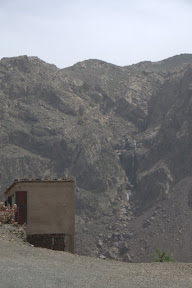 |
| From Atlas Mountains & the Gorges |
On the road from Ouarzazate to Tinihir, we’ve seen at least five men for every car that goes by optimistically holding dyed geodes on the side of the road. And we’ve done our part. We’ve consciously allowed ourselves to be snookered into buying a carpet from a Berber family in the middle of the Todra Gorge. We willingly let ourselves be talked into going on a guided hike into the Todra Gorge and subsequently stay a second night. But we had to draw the line when discussions about booking a camel ride in the desert went south.
Part of the problem – and blessing – of travelling long term is that it makes it very difficult to plan much in advance. It is a fine line between being spontaneous and being woefully unprepared. So far, we’ve taken the approach of planning each step a day or two in advance. While we’ve shown up places without reservations, we’re not yet comfortable with showing up in a town without some preparation. We’ve been trying not to go overboard with planning, lest we spend the entire day on the internet researching places to stay and things to do. Planning this way can get complicated, however, when internet is unreliable, we have no means of calling anyone except through Skype (which requires an internet connection), and places do not have online booking.
So while we knew we wanted to spend a night in the Sahara Desert, we did not have advance reservations. In our heads, the desert was going to be scorching hot and desolate. Alternatively, we heard and read horror stories of the uber-aggressive touts selling accommodations and camel trips once you arrived. (Turns out neither was exactly the way it was in real life, but more on that later). Either way, we knew we did not want to show up at the desert without reservations.
Our friends Heather and Greg travelled to Morocco in 2007, so we were relying heavily on their helpful recommendations. The place where they stayed in Merzouga, the town just outside Erg Cherbi (the sand dunes where we planned to explore the Sahara), did not have online booking. We tried calling the hotel on Skype, but for some reason the number did not go through.
The hotel where we were staying at while planning our desert adventure was in the middle of the Todra Gorge, in the valley between two tall rock walls, next to a small river and lush palm trees.
Big city, this was not. The hotel was a Lonely Planet pick, with good reviews on Trip Advisor. The room was simple and clean, the scenery was gorgeous, and the breakfast and dinner that came with the price were some of the better meals we had. The hotel appeared to be associated with a colorful cast of characters that constantly circulated in and out of the lobby area. All men, they each had a unique personality. Many were good salespeople – this is where we were talked into buying a carpet, guided hike, and second night at the hotel. All the men were friendly. The one whom we assumed was the owner, or at least in charge, was particularly friendly. One of the others sang, America! America! when he saw us. He asked to see our pictures from Essaouira. When we showed him, he laughed each time he saw a picture of a cat and said, Mrow! Too many mrow.
Sean decided to inquire with our hotel about a phone to call the place Heather and Greg recommended in Merzouga. I predicted that he was going to get a hard sell about the hotel’s own desert excursion. Sure enough, when Sean came back upstairs, he had not made the phone call but had the name and website of a place supposedly run by the owner’s “family.” We checked out reviews on the internet, and it appeared to be legitimate, and the price was good. While we were slightly wary, we figured this place was as good as any, and certainly the easiest option.
Later in the day, we saw the owner. Ahh…did you check it out? I will call my family for you. We told him, okay, please do so. He promised to call after dinner. We ate dinner in the dining room, and looked around for him in the lobby where all of the men who ran the hotel congregated. We saw a new man we had not seen before. The man began talking to us, and told us he was a grand taxi driver from Merzouga. He told us he knew English really well, and engaged us in a conversation. We then saw the owner, who offered us tea. We declined, saying we were going to head upstairs to bed. The owner feigned insult. The taxi driver told us, In the Berber culture, it is considered rude to turn down an offer of tea. You must accept.
This was not the first time we heard this. I really did not want any more tea, considering we just finished a pot after dinner. In Morocco, we have been forced to drink copious amounts of the stuff. When the tea is unsweetened, it is good. It varies slightly, but it typically contains fresh herbs and loads of fresh mint. Preparation of the tea is somewhat of a ritual, culminating in a long pour from high above the glass tea cups. The problem comes in when the Moroccans drop enormous sugar cubes into the pot, making it sickly sweet, almost as if you were drinking melted spearmint gum. Sean didn’t mind it as much as I did, but he too preferred it unsweetened.
After pressure from the owner and taxi driver, we relented and agreed to have some more tea. While we drank our tea, we sized the taxi driver up, and tried to figure out what he was after since he knew we had a rental car. During our first cup, the taxi driver chatted with us about our plans to spend one night in the desert near Merzouga. Oh, you are headed to Merzouga? You must spend two nights there! One is not enough. He repeated this over and over. Uncomfortable, we kept telling him that while two nights would be nice, our schedule would only allow one night. He then mentioned that because he was from Merzouga, he knew the best camps and could set us up with one. We told him we already had plans, and were just waiting to finalize them. He changed the subject. I finally gulped down what I felt was an acceptable amount of tea. I glanced at Sean and just as I was about to say, well, it is getting late, the taxi driver refilled my cup. Crap.
During our second cup, the owner of the hotel came out, and listened as the taxi driver told us again and again that we really needed to spend two nights in the desert. Periodically, they spoke in Berber to each other. I tried to figure out what was going on. The owner had seemed set on trying to get us to go to his “family’s” place. What would he get out of it if we were swayed into spending two nights at the taxi driver’s friend’s place?
The owner drifted in and out of the conversation, leaving us mostly alone to talk to the taxi driver. We finally were able to politely duck out of the conversation. Before we went upstairs, the owner told us that he had tried to call his family, but they were full for tomorrow night – opposite of what he told us earlier in the day. The owner told us that the taxi driver could call his friend to set us up in the desert. Before we replied, the taxi driver was pulling out his cell phone and about to make a call. We told them that we needed to discuss our plans upstairs, and that we would let them know in the morning. They looked disappointed. The taxi driver said, okay. I’ll leave all the information and he can call for you in the morning.
Upstairs in our room, we were fuming. It was close to 11 p.m. We had no place to stay the next night. We felt like everyone was trying to take advantage of us. We were mad at ourselves for even considering going with the hotel owner’s “family’s” place, and for not seeking out a public phone to call the place to which we wanted to go. We discussed how showing up in Merzouga without reservations was not an option. We discussed not going to the desert. Finally, we started looking around on the internet again. We found a place on Trip Advisor that was rated number one. We decided to try Skype again. Maybe something was wrong with the number for the other place. Maybe this number would work. It did. We made reservations to spend the next night at a camp in the desert. Thank goodness. Someone turned off the wireless router shortly after that. We joked they did it on purpose to neutralize our options, but I think it was routine.
The next morning, all seemed okay when we came down for breakfast. Phew, we thought. We can actually get out of here free and clear. But alas, no such luck. Just as we were about to walk out the door upon checking out, the owner asked us if we would like him to call the taxi driver’s friend. He had his cell phone in hand. No, Sean said. We booked a place last night. The owner peered at us suspiciously. We could tell he thought we were lying, since he knew we did not have a phone. He then bombarded us with questions. Where is it? What is the name? What is the price that you pay? This place is cheap. We claimed not to remember such details. He didn’t give up until Sean told him we already gave our credit card number and could not back out now. We to finish checking out. All of the men, with the noticeable absence of the owner, were friendly and gave us tips about the desert. The owner did not offer to help us with our bags, as he did on the way in. We left the hotel, hopped in our car and drove towards the desert, happy to have the freedom of a car.
I’m not sure what the lesson is here. Always pretend to have firm plans even if you don’t? (Then you must be prepared with many details to answer questions). Not trust anyone’s recommendations? Buy a cell phone? Be “rude” and refuse to drink the tea? It is unclear. All I know is that I hate viewing everyone with suspicion, but incidents like these are adding up to make it impossible not to.
